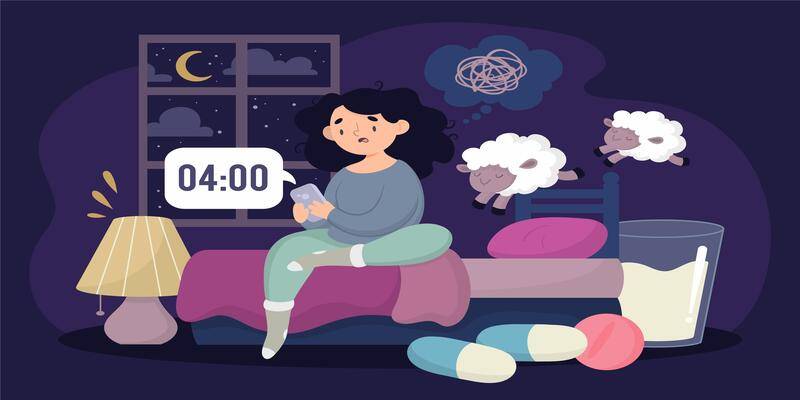The tough aspects of taking care of one’s mental health

Mental health is all about an individual’s capacity and ability to deal with different situations that life presents. We as human beings face ups and downs which are bound to affect our mood, which then impacts our mental health. If we surf the Internet today, we will find a thousand discussions on mental health. However, not much is talked about how hard it is to take care of one’s mental health, how hard is therapy, and how can one deal with flickering emotions all the time.
Now that we have identified the issue, let’s delve deep into how one can take care of their mental health. To sum up, there isn’t one particular answer that would do the trick. There are various permutations and combinations that work differently for everyone. Here are some of the practices that help:
Acceptance
It is imperative for us to accept who we are, where we are at, and how far are we from our actual goal. Once this is put into perspective, the fight doesn’t seem as difficult as it was. Feeling good about oneself helps in improving one’s self-esteem and self-image.
Take a break
It is essential to take breaks. We are human beings, not machines. It is important for us to take a breather from time to time and give ourselves some rest. One needs to constantly listen to their body and give it what it wants. A break would mean giving our bodies time to recover, process different functions, and get back to the normal state.
Eat properly
We are what we consume. This is true for all. We need to be mindful of what goes into our system. A healthy diet always helps.
Ask for help
No one is a superhero. We all fail… we all fall down and try to get up. Sometimes, it is harder to get back up and that is when we seek help. It is only human to reach out for help and support in times of need. This does not make one weak or a coward. In fact, it is a sign of growth. Family and friends could lend an ear but the right approach to figure out moods, emotions, and feelings is to reach out to a professional for help.
Talk
The essence of therapy lies in talking, venting out, and finally introspection. The most fundamental tool for therapy is to talk. It might feel awkward at first, but getting in touch with our own emotions by talking about them is a step closer to solving issues and challenges in life.
While these tips help in taking care of one’s mental health, let’s understand the tough aspects of taking care of mental health and seeking therapy.
Lack of awareness
To begin with, it is a known fact that education, information, and awareness about therapy is low and that is why most people find it hard to deal with their emotions and feelings. The ones who do, are looked down upon for seeking professional psychological help. As growing individuals, it is our responsibility to change this and spread more awareness and information about therapy – its accessibility, why it is important for everyone, and how it is not a bad thing to seek help!
Time
Committing to the process of therapy and looking after one’s mental health is tiresome. We live in a fast moving world where no one has time for anyone. Everyone is busy fitting into the “hustle” culture only to realise how toxic it is and how badly it can impact one’s mental health. Usually, when people start therapy, they meet with their therapist every week and this duration completely depends on the a) issue at hand, b) slot availability with the therapist, and c) client’s commitment to therapy. All in all, therapy is a long-term commitment that requires hard work, different types of sessions, working outside of the session, and also attending to the homework and assignments between sessions.
Finding the right one
This is the most difficult part of therapy – finding the right therapist. The right therapist will be honest, truthful, transparent, and respectful about your privacy and confidentiality. Moreover, they will be there as a facilitator pushing you at every step. Finding the right therapist means that half of the task is done and the rest is consistent sessions, constant reminders to oneself about a better version of them, follow-ups, completing homework on time, and practising therapy techniques outside of therapy.
Don’t hesitate or shy away when finding a therapist. Ask unlimited questions. Ask them for an introductory 15-minute phone call, discuss your issues at hand, and figure out their educational qualifications, their expertise, and every single thing that one might be apprehensive about. Finalising a therapist is a major decision in one’s life, so take your time.
Discomfort
Therapy is a space to explore but remember that it will have all kinds of hurdles and turns. There are times when one falls, loses their direction, and feels unmotivated to a point where they would want to give up. Exploring the problems and understanding the emotions that come attached, might be overwhelming at times. One might even question their decision of getting into therapy. Questioning whether they are wasting their money and time, whether it even helps or not. All of this is absolutely okay!
Challenging views
We as humans grow every day. We learn new things and with it, we get to know about different views, opinions, values and morals. It is inevitable for things to remain the same. Everything changes. There are shifts in opinions, there is a change of heart with different values, and so on and so forth. Therapy becomes hard because it challenges our views. We all have some thoughts and feelings that we want to keep to ourselves – things that have been a part of our lives since childhood or things our parents taught us in a certain way. Having those opinions and values questioned can feel very daunting. However, therapy teaches us that it is important to have an open mind. It is important to hear out others’ opinions and to top it all, have difficult conversations. We should be open to exploring and changing our opinions, thoughts, and values as the situations change around us.
Feeling lost
Therapy is a process to deal with ups and downs, understanding and getting to know ourselves better. But sometimes, during this process, we tend to feel “lost”. Creating one’s way and figuring out things is fun but it might also mean a lot of tears, moments of giving up, sweat, and effort. This means looking back at the old self, waving the last goodbye, and moving on to who they want to be. The therapist, acting as a facilitator, walks and moves with us throughout the rocky road till the finish line.
Therapy and taking care of one’s mental health can feel like a task. Jumping past these hurdles might feel like a big win but the individual will also feel tired, restless, hopeless, and would want to slow down.
Let the therapist know whenever one feels this way so that they can be there for the individual. The therapist can help them slow down. If one is feeling tired, hopeless, and lost, it is important to remember to hang in there. Here are a few things that one can try with their therapist when it gets hard to take care of their mental health:
-Ask the therapist for more assistance. Ask them for more homework, increase the frequency of the sessions, and more support in between sessions if need be.
-Seek out a peer support circle. When one gets in touch with people going through the same obstacles, it makes them feel that they are not alone.
-Ask the therapist to create a tool kit for emergency purposes.
-Talk to the therapist about the issues at hand. What bothers you, what do you overthink about, or can’t stop thinking about. Don’t hesitate when sharing.
-Be kind to yourself, always.
-Lastly, be patient with yourself and your therapist.
There is one thing common between life and therapy, both get hard but both get better. So stick around, move down that rocky road with multiple ups and downs, and eventually, the path towards growth, clarity, and better mental health will be visible.






